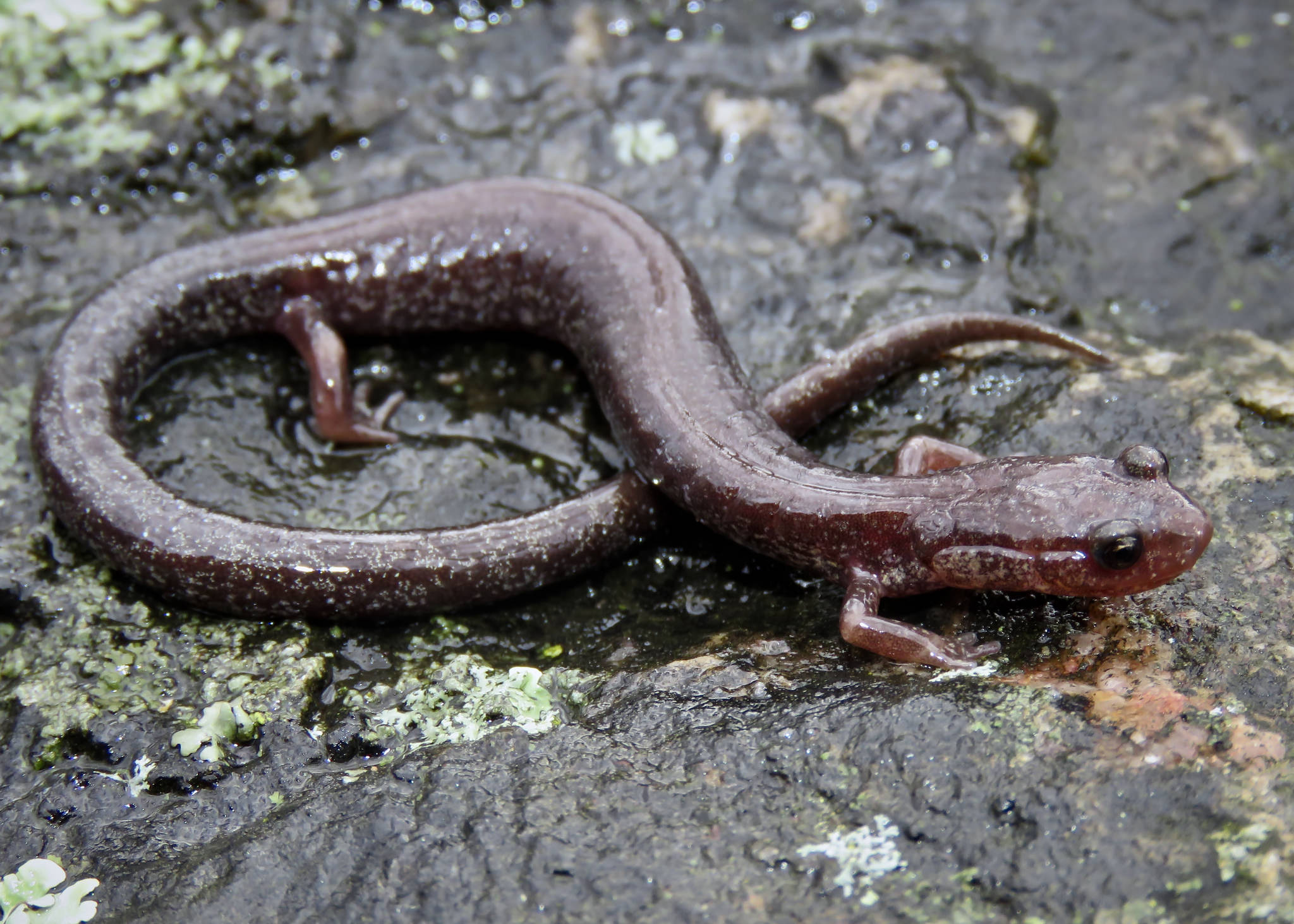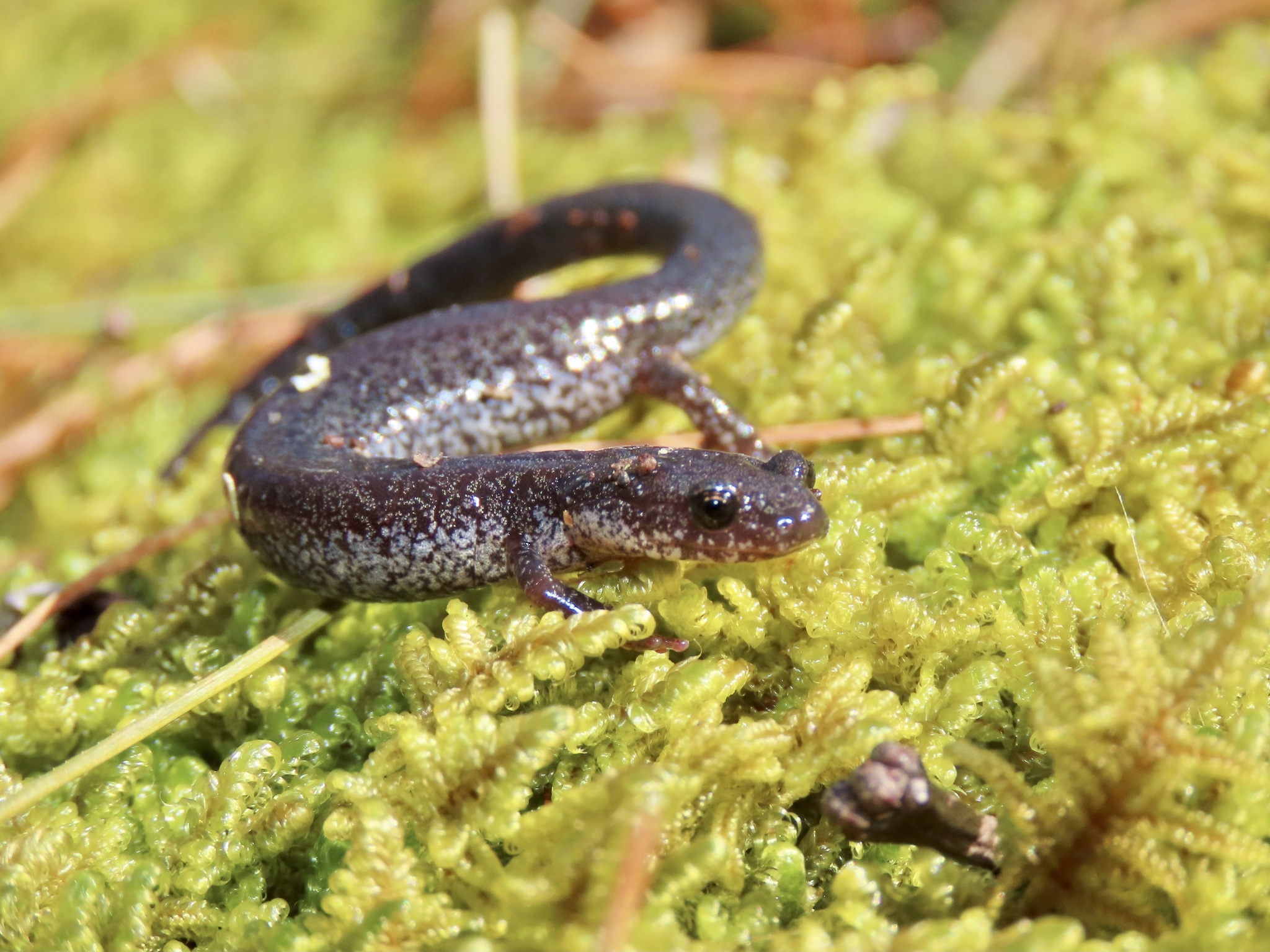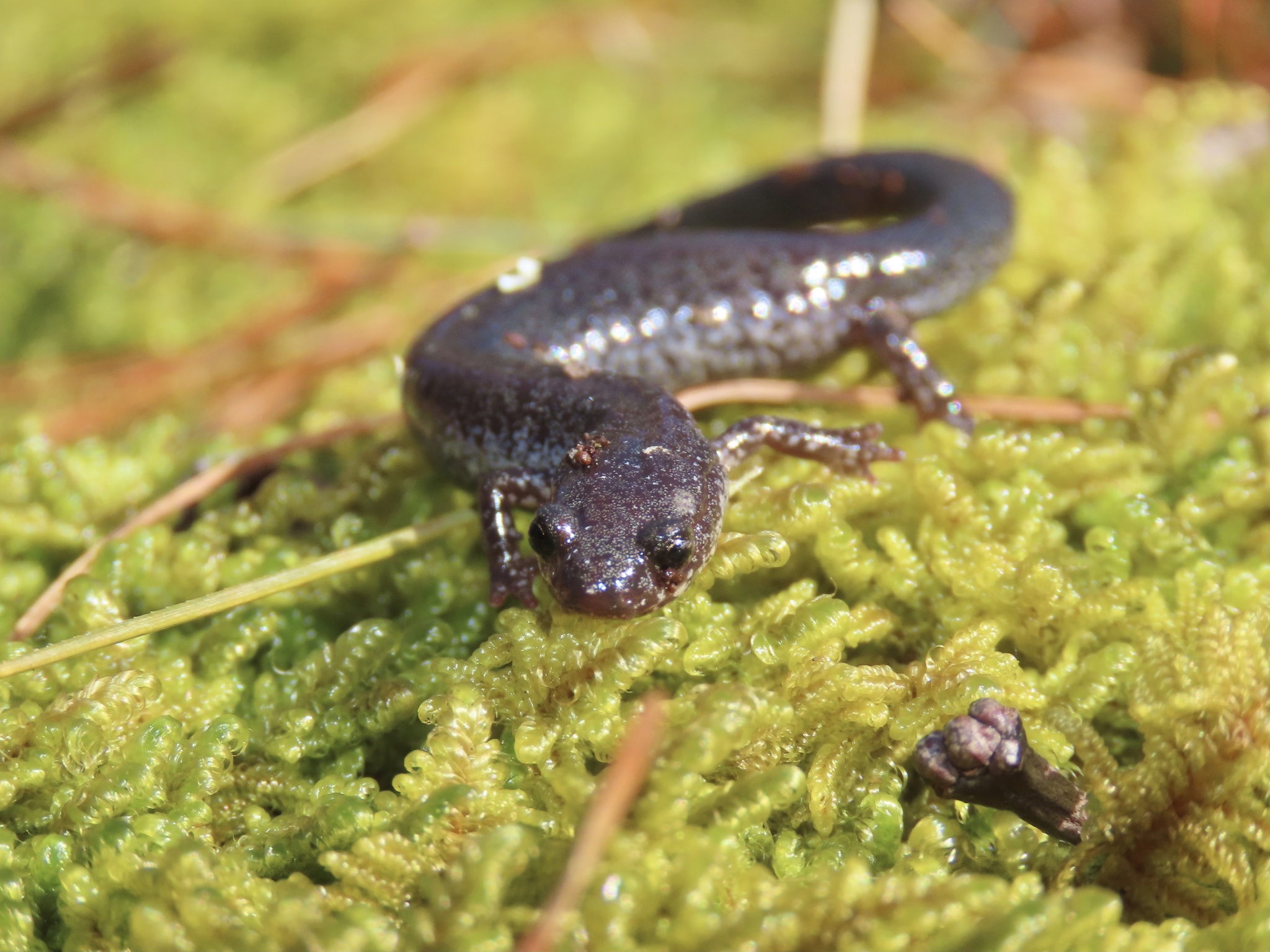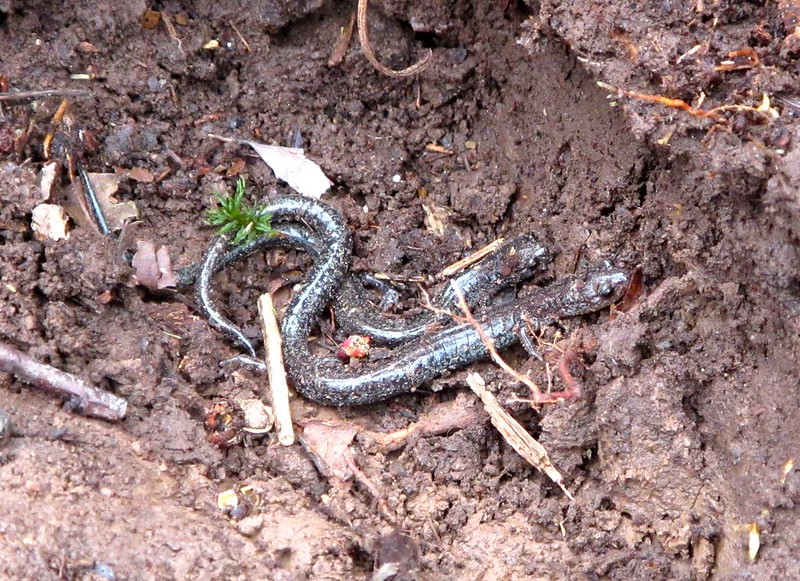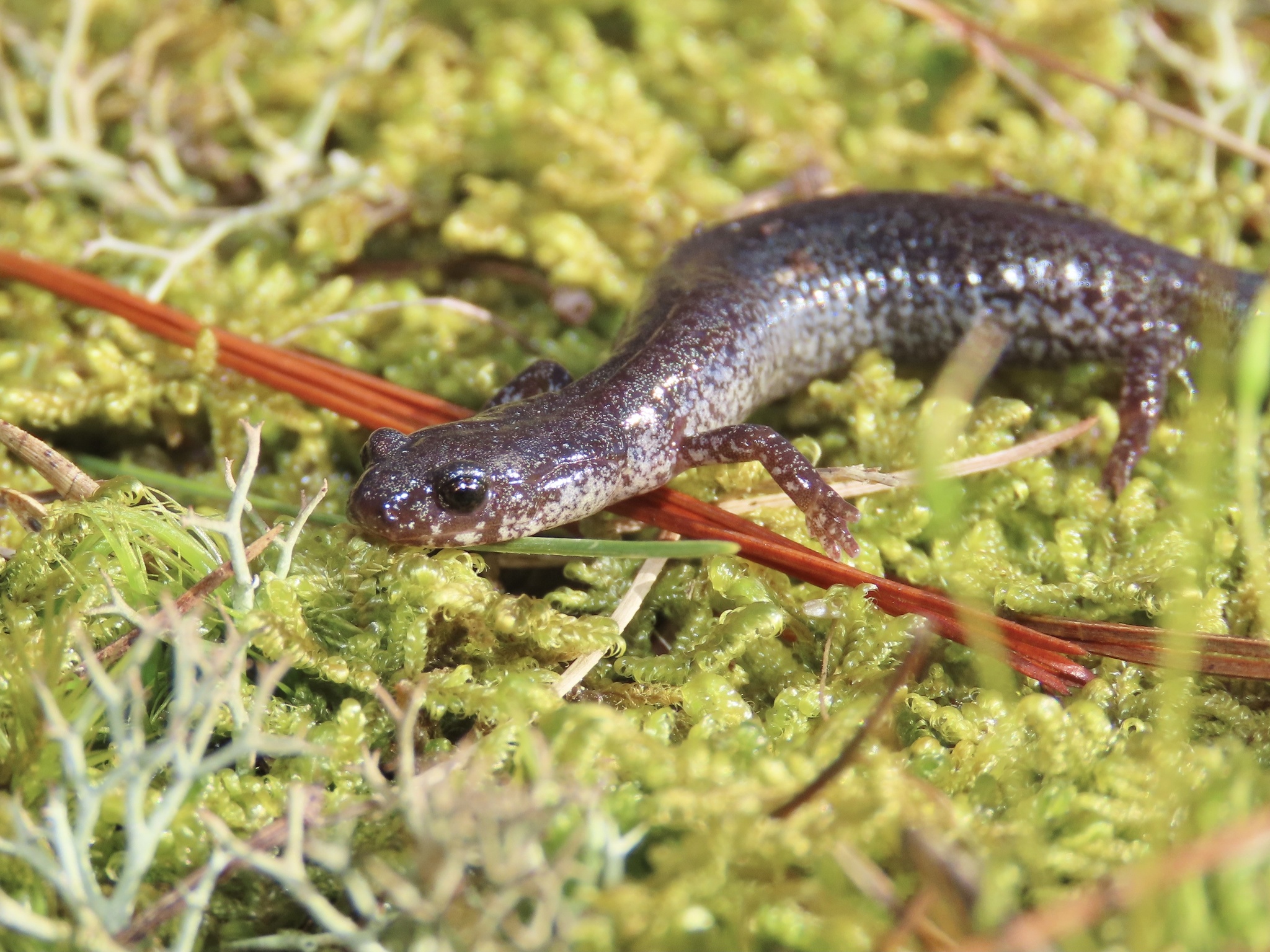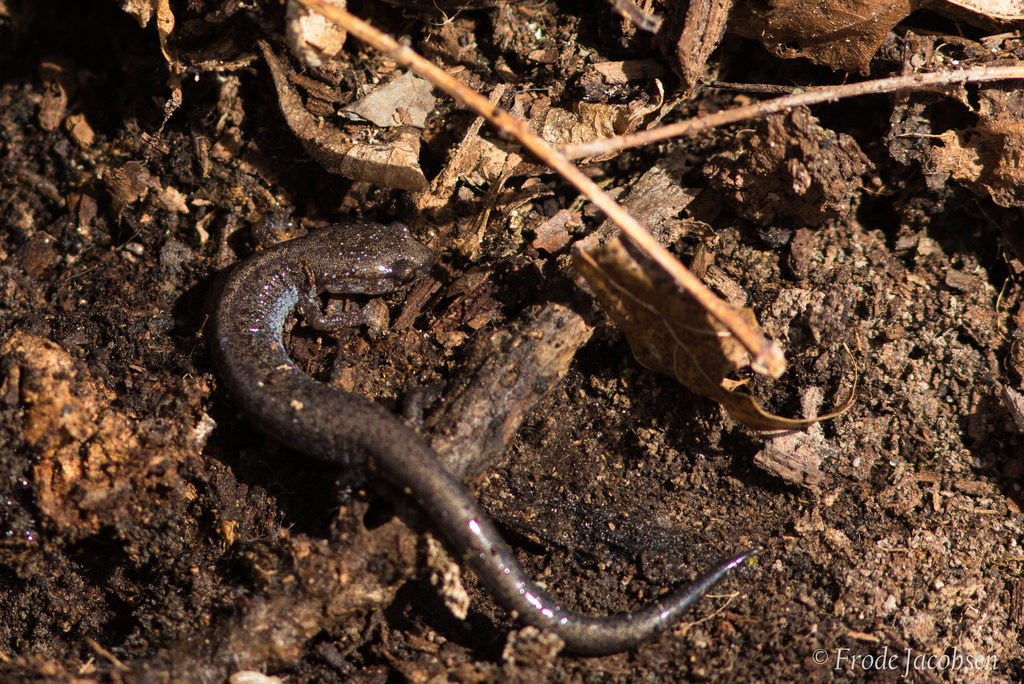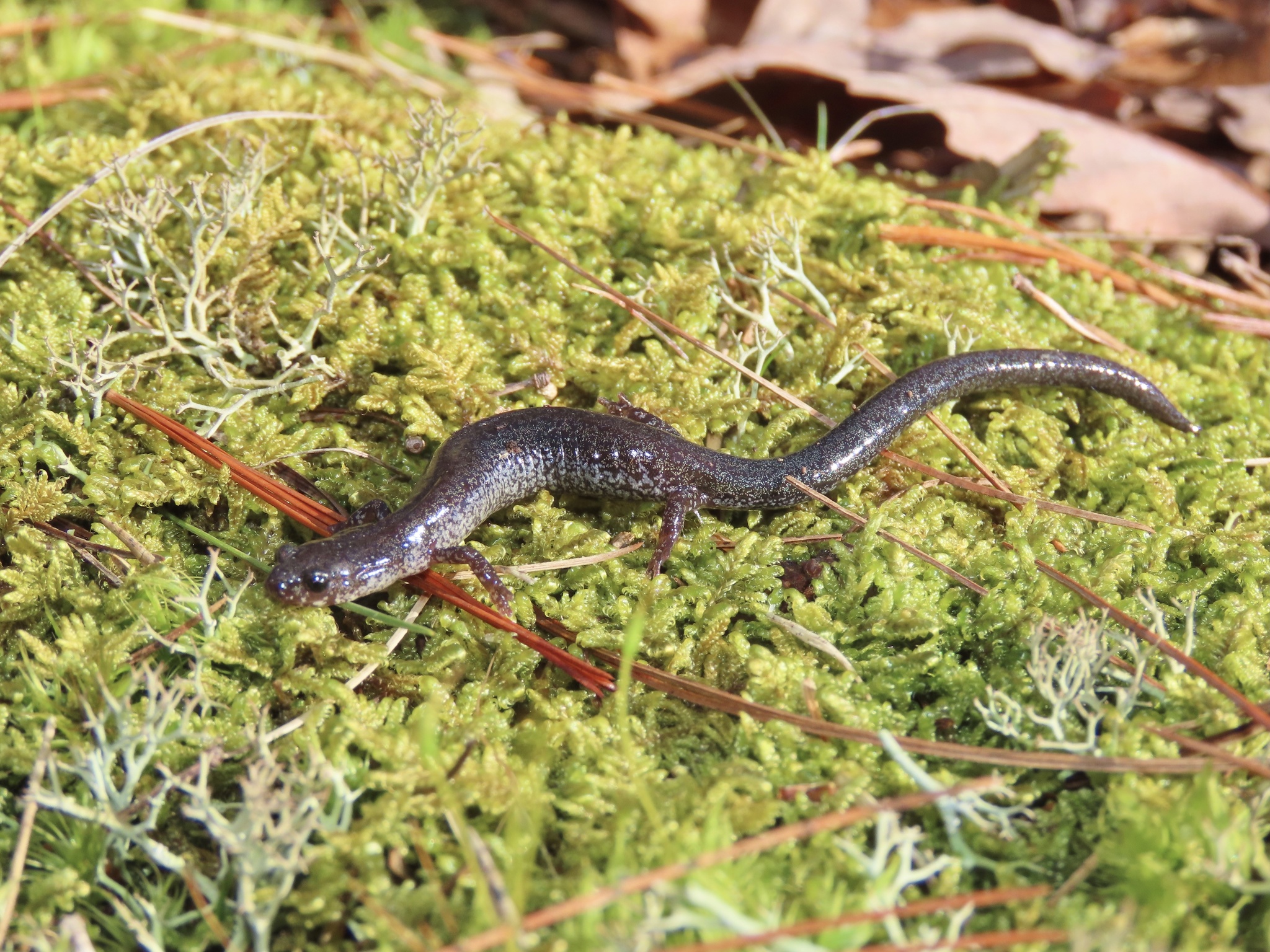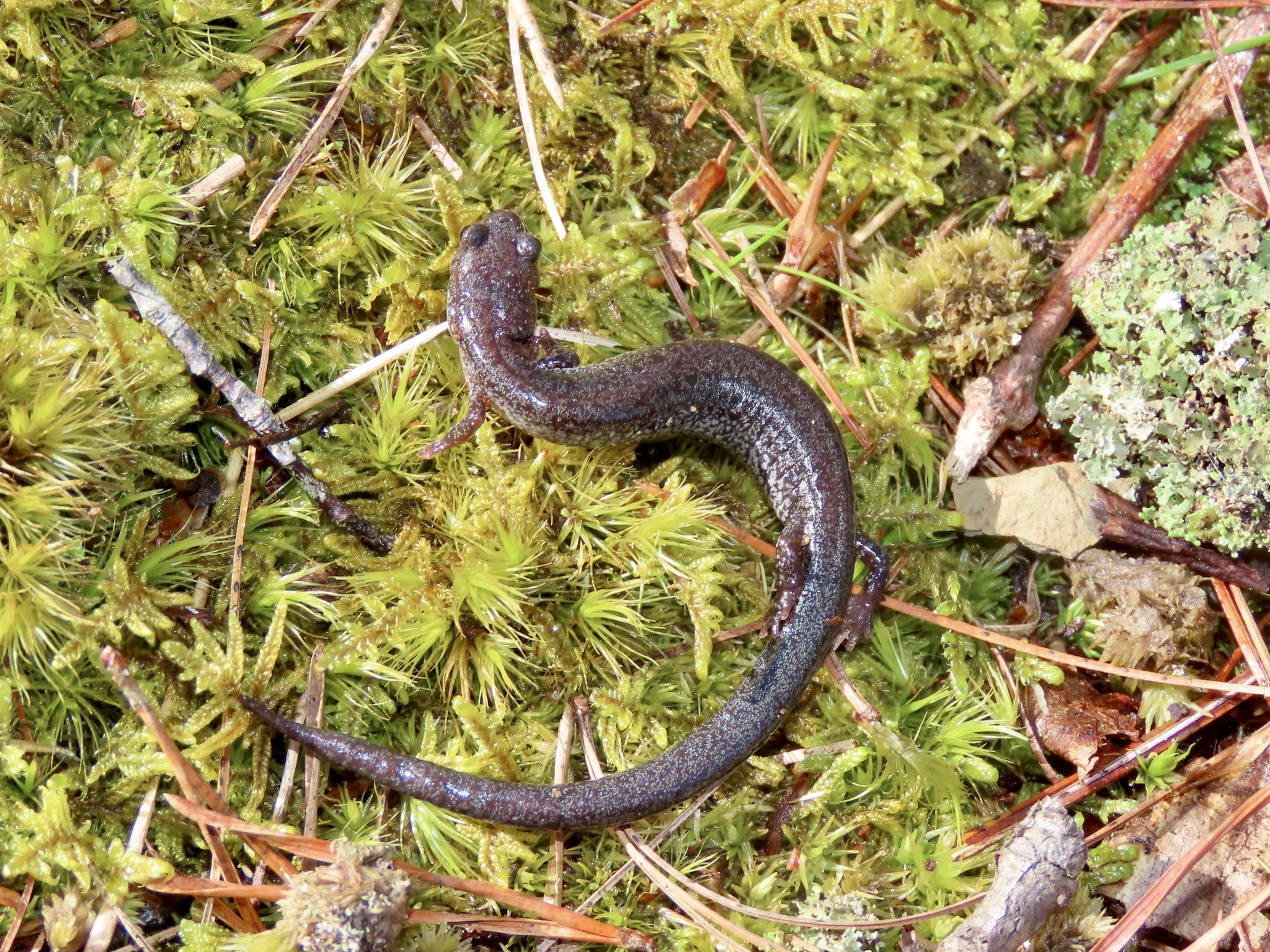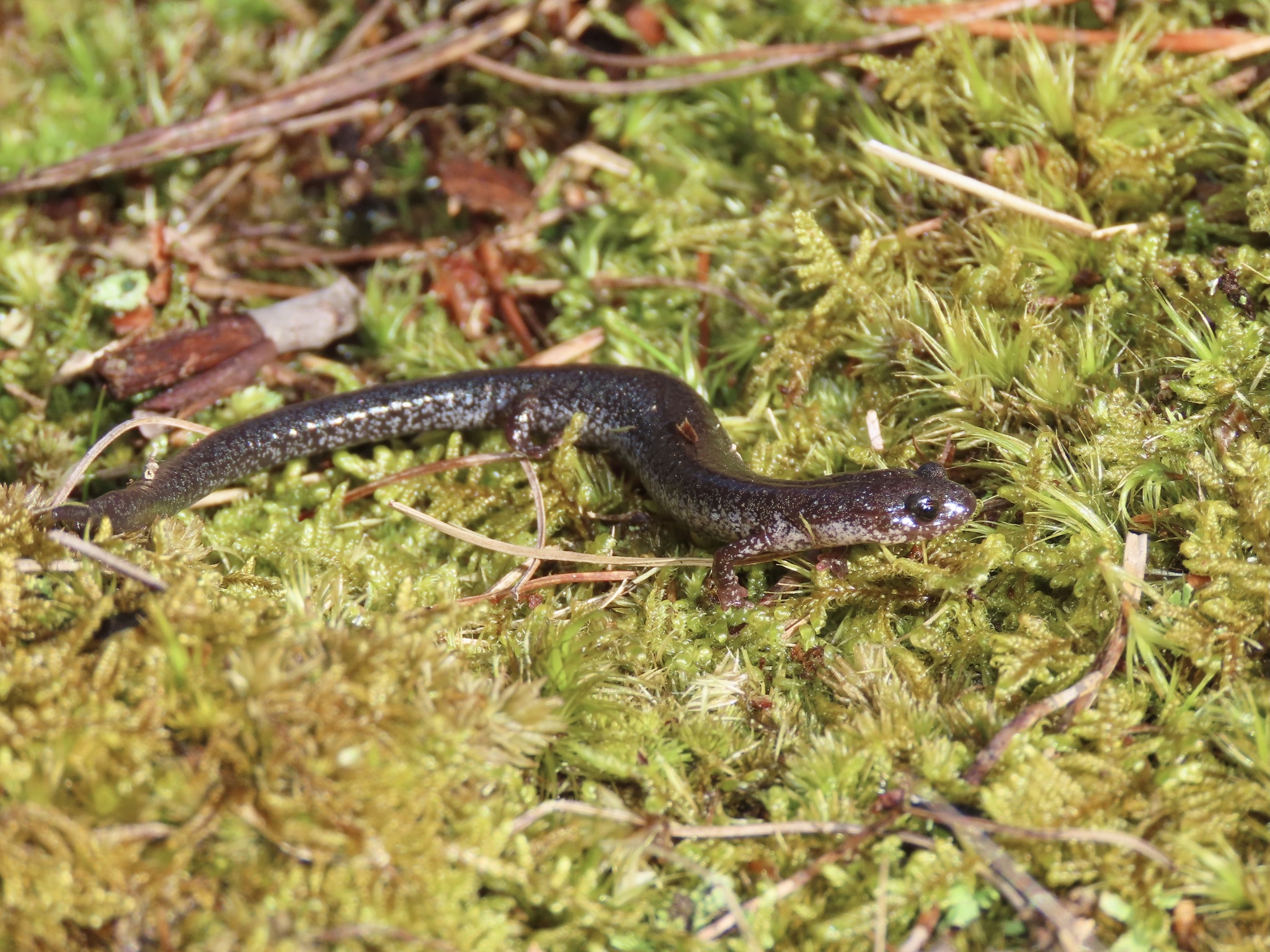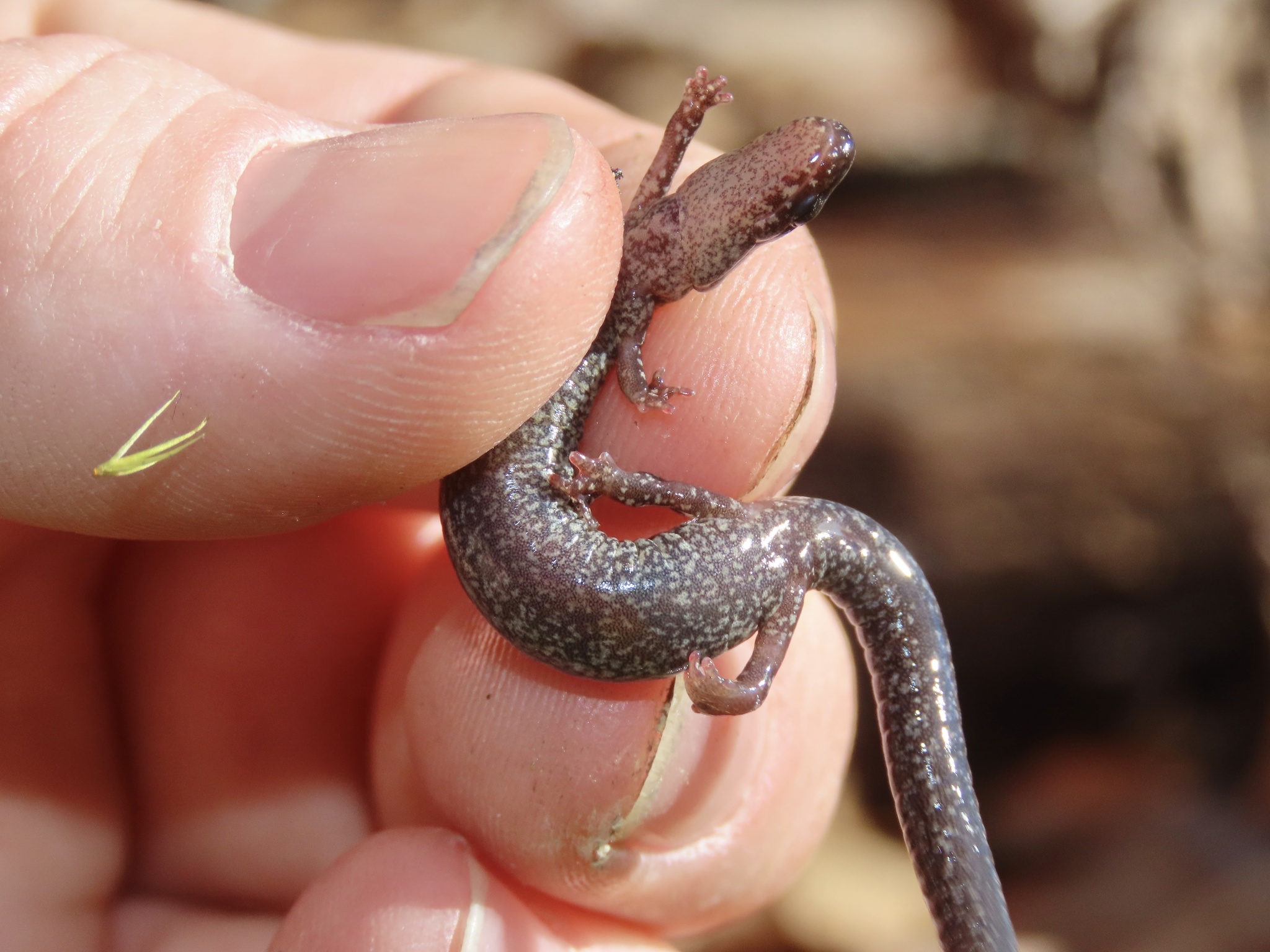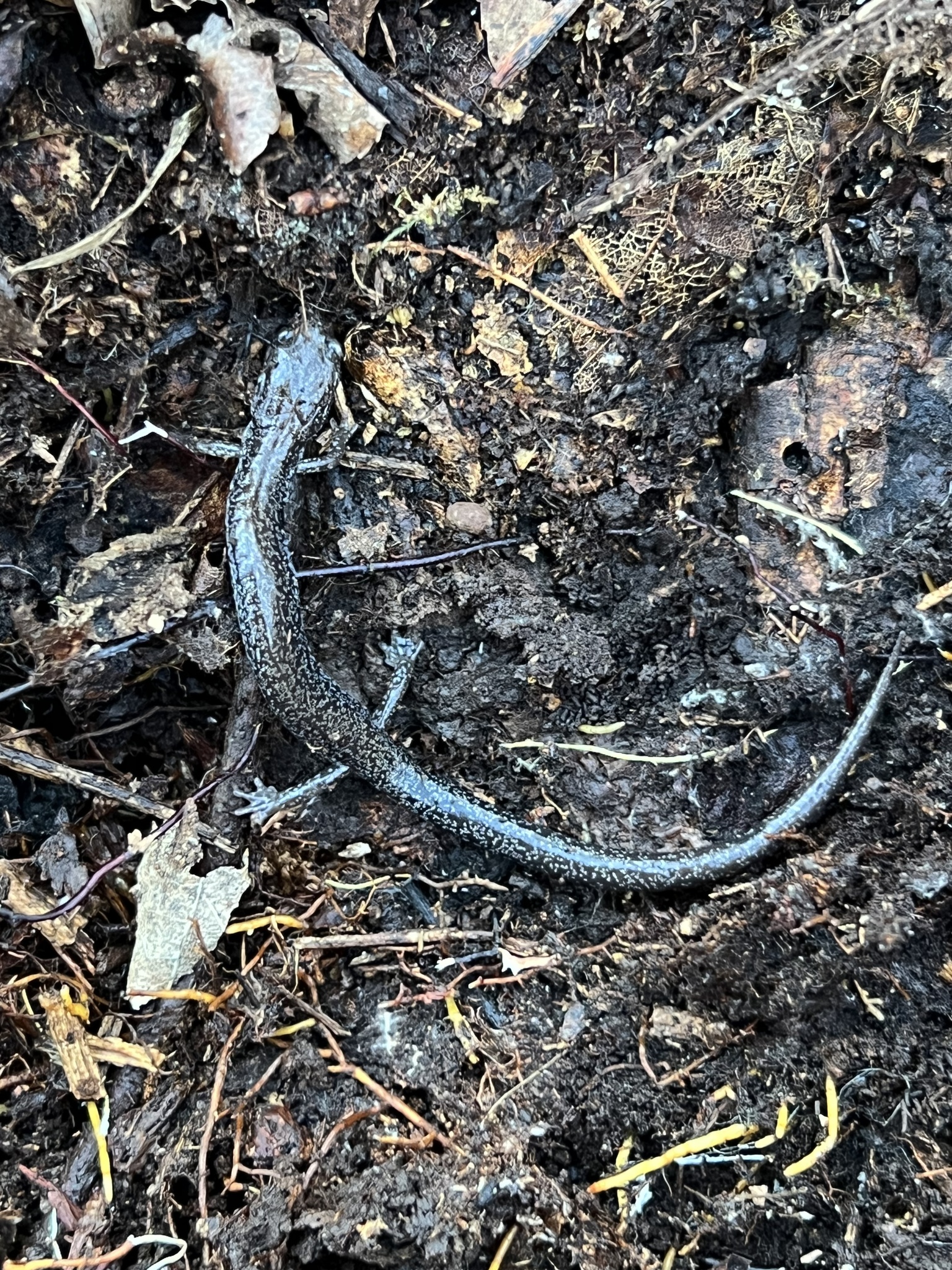Map Snapshot




68 Records
Status
Valley and Ridge Salamander (Plethodon hoffmani) is a slender, long-tailed species that occurs in the ridge and valley and mountains of western Maryland, from Washington County to Garrett County. This salamander appears to favor drier, well-drained habitats than other Plethodon species (Maryland DNR site). They are terrestrial and generally found beneath rocks and logs on mountain slopes. Breeding occurs in the spring.
Seasonality Snapshot
Source: Wikipedia
| Valley and ridge salamander | |
|---|---|

| |
| From Indiana County, Pennsylvania | |
| Scientific classification | |
| Domain: | Eukaryota |
| Kingdom: | Animalia |
| Phylum: | Chordata |
| Class: | Amphibia |
| Order: | Urodela |
| Family: | Plethodontidae |
| Subfamily: | Plethodontinae |
| Genus: | Plethodon |
| Species: | P. hoffmani
|
| Binomial name | |
| Plethodon hoffmani Highton, 1972
| |
The valley and ridge salamander (Plethodon hoffmani) is a species of salamander in the family Plethodontidae endemic to the Appalachian Mountains in the eastern United States.
Etymology
[edit]The species is named after biologist Richard Hoffman of Virginia, who collected the holotype specimen in 1954.[2]
Description
[edit]The valley and ridge salamander is a terrestrial salamander which a total length of 80 to 137 millimetres (3.1 to 5.4 in). This species is slender with short legs, a long tail, and 21 costal grooves. The dorsum is dark brown to blackish with scattered whitish or brassy flecks and the venter is dark with mottling, especially on the chin.[3]
Distribution
[edit]The natural habitat of the valley and ridge salamander is hardwood forests of the Valley and Ridge province of the Appalachian Mountains, up to 1,400 m (4,600 ft) in elevation. This species can be found in the Appalachians from the Susquehanna River Valley in central Pennsylvania, through western Maryland and eastern West Virginia, south to the New River in southwestern Virginia.[1]
Ecology
[edit]The species occurs in terrestrial valley and ridge physiography, generally in mature hardwood forests with well-drained soils. It lays eggs in moist cavities, where they develop directly without a larval stage.[1] Individuals can be found under logs and rocks and tolerate cool weather well. In wet weather, they forage in leaf litter and as the surface dries, retreat to damp covered areas.[4] They tend to be found on slightly drier slopes than their close relative, the red-backed salamander.[5]
References
[edit]- ^ a b c IUCN SSC Amphibian Specialist Group (2014). "Plethodon hoffmani". IUCN Red List of Threatened Species. 2014: e.T59341A56363258. doi:10.2305/IUCN.UK.2014-1.RLTS.T59341A56363258.en. Retrieved 14 November 2021.
- ^ Beolens, Bo; Watkins, Michael; Grayson, Michael (2013). The Eponym Dictionary of Amphibians. Exeter: Pelagic Publishing. p. 96. ISBN 9781907807442.
- ^ Josey, Marcus (2020-05-08). "Virginia Herpetological Society". www.virginiaherpetologicalsociety.com. Retrieved May 8, 2020.
- ^ "Virginia Herpetological Society". www.virginiaherpetologicalsociety.com. Retrieved 2020-05-08.
- ^ "Plethodon hoffmani". www.marshall.edu. Retrieved 2020-05-08.
